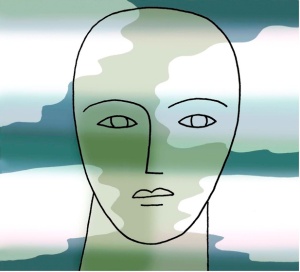
Some doctors suggest “chemobrain” doesn’t exist or is exaggerated.
The Cloud Over Chemotherapy
More doctors must confront the question: Can it harm the brain?
By ELLEN CLEGG
When President Obama used his budget and his bully pulpit recently to announce a plan to double funding for cancer research, medical circles were abuzz. Nearly 40 years after President Nixon declared war on cancer, there is momentum on a number of fronts. The focus, rightly, is on a cure. Yet scores of cancer survivors struggling with long-term side effects from their treatments cannot help but wonder: What about us? Where, they ask, is the cure for the cure?
Lingering problems with memory and thinking during and after chemotherapy – known as “chemobrain” among cancer patients – are slowly beginning to attract attention and grant money for serious study. It is a shift that is long overdue. Pushed to the forefront by vocal patients who insisted on being taken seriously, chemobrain has taken years to attain legitimacy as a real phenomenon in the eyes of medical science. Research is still in its infancy, and many oncologists disdain the very term for its imprecision. They worry that media fear-mongering will discourage their patients from submitting to toxic drugs that can damage healthy cells as they destroy cancerous ones.
Yet a hard fact remains: Chemotherapy, one of the hallmark treatments for cancer, may also be doing long-term damage to the brain. This medical dilemma holds profound implications for legions of cancer survivors who hope to return to family or work life feeling somewhat whole again. “It is going to have all kinds of downstream social costs,” says Christina Meyers, a researcher in neuro-oncology at M.D. Anderson Cancer Center in Houston and the editor of Cognition and Cancer, a collection of scientific studies published in textbook form late last year.
What, patients wonder, could be going on? Hair grows back, fatigue abates, but a spaced-out feeling lingers, impeding daily life. Dr. Jorg Dietrich, a neuro-oncologist at Massachusetts General Hospital, believes he has some answers. Let’s be clear: He never uses the term chemobrain. But the symptoms he is studying are unmistakable – impaired memory, and an inability to concentrate or multitask. He makes a compelling case that the cause lies deep inside the brain, in regions where immature and newborn cells – called progenitor cells – are proliferating. These self-renewing cells, part of the complex structures needed for memory and other normal functions, are particularly vulnerable to toxic chemotherapy drugs.
“If you stop or inhibit the generation of newborn cells in the brain, you will have to deal with the consequences years down the road,” he says. These progenitor cells “are needed to rebuild what is lost.” Cut off the water source to a cornfield, he says, and “you will not be able to grow anything in the years to come.”
Better testing and labeling are crucial in order to measure the toxic potential of chemotherapy drugs before they are dripped into a vein. Patients and clinicians alike hope that emerging research on chemotherapy and cognition will prompt action from pharmaceutical companies and the Federal Drug Administration – and lead to more treatments that target enemy cells without destroying healthy tissue.
Obstacles to finding a cure for chemobrain remain, in part because studies are small, or compare apples to oranges. Other physical factors can make the picture murky. The very stress of a cancer diagnosis, or depression, could be contributing to memory loss, for example. But although the scientific literature may be complicated, the pace of research has quickened noticeably in the two years since I began the reporting for a book on the subject. I received more than one e-mail warning from doctors I interviewed, suggesting that chemobrain does not exist or is exaggerated. One oncologist had second thoughts about talking at all, worried that publicity about chemobrain would discourage his patients from completing their treatment regimen.
I kept coming back to the principle “first, do no harm.” The story of chemobrain is likely to trace an arc similar to that of other patient empowerment movements. In the 1970s, breast cancer patients began demanding surgery that was less disfiguring than the Halstead mastectomy. Chemotherapy will remain a cornerstone of cancer treatment in the foreseeable future, but doctors should know that patients want something more: an unvarnished talk about the balance of risks and benefits to help them prepare for the onslaught ahead.
Ellen Clegg, a deputy managing editor for the Globe, is the author of ChemoBrain: How Cancer Therapies Can Affect Your Mind. E-mail her at clegg@globe.com.
(Boston Globe magazine, Sunday, April 5, 2009)
Leave a comment